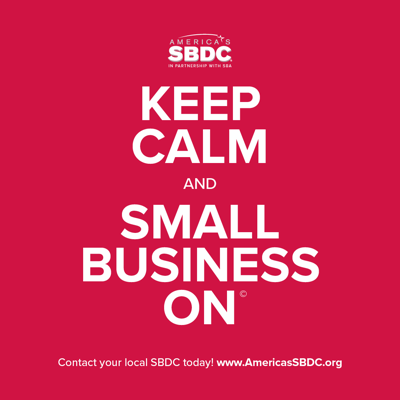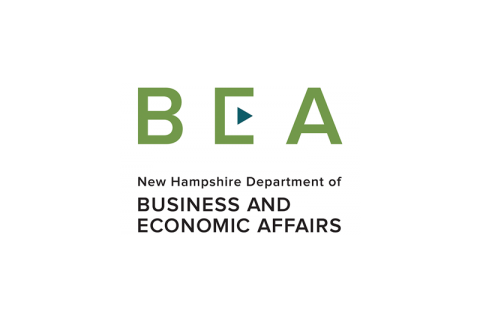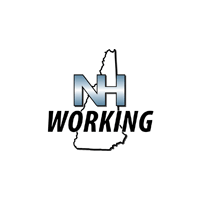
NH SBDC is committed to doing everything we can to help you navigate the challenges your business is facing to recover and be resilient as we emerge from the pandemic.
We continue to provide highly individualized advising and education to NH businesses at no cost. Our team of business advisors can help businesses incorporate relief measures, review options, and discuss concerns related to cash flow, staffing, marketing, accounting, supply chain interruptions, and more.
We offer webinars that are current and relevant. Remember that our online learning opportunities are accessible 24/7. Join our email list; we send newsletters regularly.
2021 COVID Relief
Join our email list to receive future updates via our newsletter (sign up at the button above). Newsletter 9/10/2021.
Connect with an SBDC advisor or NH SBA to learn about COVID relief resources and how to use them in your business.
As in any economic downturn, the recognition and the speed of adaptation is key to liquidity and to sustaining businesses. While there is no one solution to fit all, there are working case scenarios that can come as good examples of that adaptation process and measurable success.
To help you address critical business operations, NH SBDC’s advisors have prepared Tips and Recommendations to help you think through what you should focus on now and what to plan for down the road.

The NH Department of Business and Economic Affairs has a COVID-19 website to support the New Hampshire business community . The site has information on business resources, financial assistance, unemployment benefits, health guidelines and recent updates on COVID-19 federal and state programs for businesses. Click HERE to visit the site.
U.S. Small Business Administration (SBA) low-interest federal disaster loans can provide working capital to New Hampshire small businesses and private, non-profit organizations suffering substantial economic injury as a result of COVID-19.
-
SBA’s Economic Injury Disaster Loans offer up to $150,000 in assistance to help overcome the temporary loss of revenue.
-
These loans may be used as working capital to pay fixed debts, payroll, accounts payable and other bills.
-
The interest rate is 3.75% for small businesses and 2.75% for non-profits.
-
SBA offers loans with long-term repayments in order to keep payments affordable, up to a maximum of 30 years.
EIDL Advance
Please note: The 2021 COVID Relief Bill outlines additional funds for EIDL Advance grants. More info to come. All EIDL loan applicants in 2020 were eligible for up to a $10,000 Loan Advance grant, whether the loan application was accepted or denied. The Loan Advance does not have to be repaid and under the 2021 legislation will no longer need to be deducted from your PPP forgiveness.
SBA Express Bridge Loans
SBA Express Bridge Loans are available from Express lenders. Loans are for $25,000 and may be paid back via an EIDL loan.
Click HERE to visit the SBA Disaster Assistance website or connect with their customer service center at 1-800-659-2955 (TTY: 1-800-877-8339) or e-mail disastercustomerservice@sba.gov.
The CARES Act established the $349 billion Paycheck Protection Program (PPP). A second round of $310 billion in funding was added. The 2021 COVID Relief Bill added $285 billion to the program.
The PPP is providing much-needed relief to millions of small businesses so they can sustain their businesses and keep their workers employed.
The loan program helps small businesses with their payroll and other business operating expenses. It provides critical capital to businesses without collateral requirements, personal guarantees, or SBA fees – all with a 100% guarantee from SBA. All loan payments will be deferred for six months. Most importantly, the SBA will forgive a portion of the loan proceeds.
See the Notes above for 2021 COVID Relief Bill info on the PPP Program and PPP Forgiveness.
See the webinar listings above for Updates to PPP and COVID Relief Programs sessions.
Click HERE to visit the SBA Disaster Assistance website.

Per Emergency Executive Order #5, individuals who are unable to work or who have reduced hours due to the COVID-19 pandemic will have immediate access to unemployment benefits.
Anyone in the following situations will now be eligible for state unemployment:
- If your employer temporarily closes due to COVID-19;
- Individuals that need to self-quarantine or are directed to quarantine at the instruction of a health care provider, employer or government official;
- Individuals that need to care for a family member that has COVID-19 or is under quarantine;
- Individuals that need to care for a dependent because of school closures, child care facility closures or other similar types of care programs;
- Self-employed individuals that are temporarily unable to operate their business because of any of the above listed situations will also be eligible.
Individuals will need to file for each week of temporary unemployment. People can do all of this online from your home internet connection or your phone without ever having to go into a state office. For more information and to file for unemployment benefits, visit the NHES website or call 603-271-7700.
Benefits for self-employed individuals have been extended through March 14, 2021. Pandemic Unemployment Assistance has been reauthorized and modified to cover up to 50 weeks and provide $300/week in supplemental funds.

As employers navigate new challenges created by COVID-19, one way to help maintain their trained workforce is the State's WorkShare program. Employers can temporarily reduce their workforce in a particular unit, shift or company 10% - 50% and avert a layoff. They can then recall the employees when business increases.
As employees are retained - morale, productivity and flexibility in the workplace are maintained. Affected employees have a softer landing as their hours are reduced rather than eliminated, and they keep their health insurance and can collect wages for hours worked plus unemployment compensation benefits for the reduced hours.
WorkShare plans may be submitted by any New Hampshire employer whose taxes are currently up to date and who is in good standing with the NH Department of Labor.
Find more information on the NH WorkShare program.
The 2021 COVID Relief Bill announced that if a business already has an SBA loan through a lender, whether it is a 7A, 504 or microloan, SBA will continue to pay the lender the principal, interest and fees for 3 months beginning February 2021, up to $9,000/month. SBA will also make payments on new SBA 7A, 504 and microloans made between February 1 - September 30, 2021.
We strongly encourage you to contact your lender to make sure that debt relief measures are in place for your loans.
The Families First Coronavirus Response Act (FFCRA) includes provisions to help ensure that employees who are sick or need to care for a loved one can get the time off that they need during this public health crisis.
The bill provides employers with fully refundable tax credits to help cover the costs of paying 2 weeks of sick leave wages, and up to 10 additional weeks of family leave wages, and health insurance premiums for employees during this leave. These tax credits are fully refundable so businesses will be able to receive the full value of the credits regardless of their tax situation
Under the FFCRA, businesses will receive tax credits worth up to $511 per employee per day for paying an employee regular wages for up to two weeks of personal paid sick leave, $200 per employee per day for paying an employee regular wages for up to two weeks of leave to care for a sick family member or child home from school, and $200 per employee per day for paying an employee 2/3 wages for up to ten weeks of leave to personally quarantine or to care for a child home from school. See this CHART for more details.
4/1/2020 - Employers with fewer than 50 employees may claim an exemption from the emergency paid leave provisions of the FFCRA and the exemption applies specifically to leave taken for reasons of child care and school closures related to COVID-19. Small businesses with fewer than 50 employees, including religious and nonprofit organizations, are exempt from two aspects of the FFCRA’s provisions:
(1) paid sick leave due to school closure, place of care closure or child care provider unavailability for COVID-19 related reasons; and
(2) emergency paid leave under the Family and Medical Leave Act (FMLA)
when doing so would jeopardize the viability of the business. An "authorized officer" of the business must determine whether it meets this criteria, according to the guidance.
4/1/2020 U.S. DOL’s Wage and Hour Division will temporarily not enforce the FFCRA until April 17. DOL will not bring enforcement actions against any public or private employer for FFCRA violations during this 30-day period provided the violating employer acts "reasonably" and "in good faith." The employer must also remedy any violations as soon as practicable, its violations must not be willful and DOL must receive from the employer a written commitment to comply with the law in the future.

We will update info for the 2021 COVID Relief Bill soon. Here is the outline:
Congress expanded the Employee Retention Tax Credit to cover 70% of eligible employment taxes and extended it through July 1, 2021. Critically, the legislation allows those who have received PPP loans to also access this tax-credit, so long as they do not claim payroll that was paid for with PPP loan proceeds.
Employee Retention Credit
-
4/1/2020 The Treasury Department and IRS today began implementing the Employee Retention Credit included in the coronavirus economic package signed into law last week. The program provides a fully refundable tax credit for 50 percent of wages, up to $10,000, for each employee kept on the payroll by businesses that have taken a financial hit because of the pandemic.
Businesses qualify if they have been fully or partially shuttered by government order, or if their gross receipts are below 50 percent of what they took in during a comparable quarter in 2019. They are no longer eligible once their gross receipts rise above 80 percent of the comparable quarter.
-
The IRS published Guidelines for businesses that want to apply for the credit, which is applied against the employers’ share of payroll taxes.
-
The agency also issued a notice to shield employers from penalties they may have incurred for failing to deposit employment taxes when tapping a tax credit Congress created to help them cover wages for sick leave and family leave.
The USDA announced details on the Coronavirus Food Assistance Program (CFAP), which will provide up to $16 billion in direct payments to deliver relief to America’s farmers and ranchers who have suffered a 5%-or-greater price decline due to COVID-19 and face additional significant marketing costs as a result of lower demand, surplus production, and disruptions to shipping patterns and the orderly marketing of commodities. More information is available in this news release.
Through July 31, 2020, USDA Business and Industry Loan Guarantees (B&I) and Rural Energy for America Program (REAP) Guaranteed lenders may assist borrowers experiencing temporary cash flow issues by deferring payments for a period no longer than 120 days. This guidance applies to ALL borrowers that had a current repayment status as of March 1, 2020.
